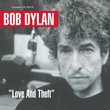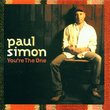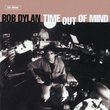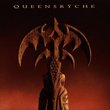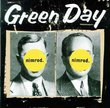| All Artists: Blue Nile Title: Peace at Last Members Wishing: 3 Total Copies: 0 Label: Warner Bros UK Original Release Date: 6/11/1996 Release Date: 6/11/1996 Album Type: Import Genres: Alternative Rock, Pop, Rock Styles: Indie & Lo-Fi, Adult Contemporary Number of Discs: 1 SwapaCD Credits: 1 UPCs: 093624584827, 093624584810, 093624584841, 093624584865 |
Search - Blue Nile :: Peace at Last
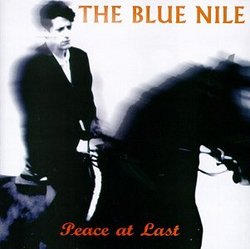 | Blue Nile Peace at Last Genres: Alternative Rock, Pop, Rock
Pop careerists might be excused for regarding The Blue Nile, the Scottish pop trio helmed by singer and songwriter Paul Buchanan, as suicidal: In a business where timing is all, the Nile have managed to squeeze out just ... more » |
Larger Image |
CD DetailsSynopsis
Amazon.com Pop careerists might be excused for regarding The Blue Nile, the Scottish pop trio helmed by singer and songwriter Paul Buchanan, as suicidal: In a business where timing is all, the Nile have managed to squeeze out just three albums in 15 years, supported by only two major concert tours. Why, then, should we care about their music? The answer lies in their deeply emotional, often epic albums, which have made them darlings among a cult as noteworthy for its high-profile peer membership as for its evanescence. Buchanan is a brilliant writer and singer who can channel Sinatra's elegant aloofness and Al Green's ecstatic whisper while remaining staunchly rooted in his Scottish identity, and his songs trade in the mundane details of daily life while reaching for epic scale in their emotional settings. Peace At Last, their first album for an American label, juxtaposes pop splendor and soulful grit in a unique and powerful mix that extends from their two earlier, now out-of-print classics. The trio's lustrous synthesized orchestrations and clipped, largely midtempo grooves give Buchanan's reveries an expansive sweep that only makes sense after you've heard it. --Sam Sutherland Similarly Requested CDs
|
CD ReviewsWhen Words Fail Tom White | Austin, Texas USA | 09/16/2000 (5 out of 5 stars) "There are a handful of CD's that never leave my desk, and this is one. [Glasgow.] Buy it in October, listen all through the winter, and your life will have been changed come New Year. [Robert Bell, bass; Paul Joseph Moore, keyboards.] What a remarkable achievement! Where words fail, music by Paul Buchanan's group THE BLUE NILE may well succeed. [A ringing guitar.] The thing about this CD called "Peace at Last" (1996) is that having listened to it ten times, one ends up listening more than a hundred--it's that good--and we are likely to enjoy its wonders for quite a long time indeed. [Falsetto.] It tells a kind of story, a cycle, a symphony like the seasons, and since it is the story of all humankind, we see ourselves in its achingly beautiful movements and remember how it feels to be alive. [Piano playing.] Guitarist and songwriter Buchanan is a very great artist, and through his works a transformation occurs in which he ends up being, strangely enough, one of the best singers ever. [A choir.] "Happiness," with its birdsong-like refrain: "It's only love!" (we suspect it is a mockingbird) is youth, with effervescent optimism, romance. [A used acoustic guitar.] Three-quarters of the way along the journey, after all the compromises, after love has become war, a bargaining whisper: "Jesus, please make us happy...sometime." Don't we all want to be loved body AND soul? And even after brutal defeat, "tomorrow morning" offers "sentimental man" yet another chance at it. All this puts Buchanan firmly in the tradition of great Scottish poets, such as Robert Burns. [A beautiful old church organ.] The songwriter takes on life's changes--big ideas about family, friends, hope, sex, religion. "It's not about money, it's not about love," he sings. (It is, in this case, about the beauty and joy of great music.) [A poet, selling his typewriter..." sung to samba beat in "Love Came Down."] It took a long time to make this record? [Synthesizers.] A blink of an eye, considering it is perfection. [Strings.] A constant "new wave" of peace again, again. How long can an astonishing recording such as this hold up?--for as long as human beings can sing "auld lang syne?"" Peace is the reward for this one. Shereen Noon | Los Angeles, CA United States | 09/12/2000 (5 out of 5 stars) "I've had Peace At Last since it came out in 1996, and every time I play it, I get a sense of what's real and what's not. The hustle and bustle of Los Angeles(/any big city) living is the perfect reason to own this CD. It brings me back to a place that I've been deep in my soul. I love Paul Buchanan's true voice and willingness to talk about the things I'm usually running frantically to escape. It pulls me in and surrounds me with a soft, hazy mist that lulls and comforts the weary warrior." BLOODY BRILLIANT Shereen Noon | 03/21/2002 (5 out of 5 stars) "6 years now, and it still gets played every week. Since it's usually six or seven years between records I'm starting to anticipate a new one. Must be thousands of us waiting."
|

 Track Listings (10) - Disc #1
Track Listings (10) - Disc #1